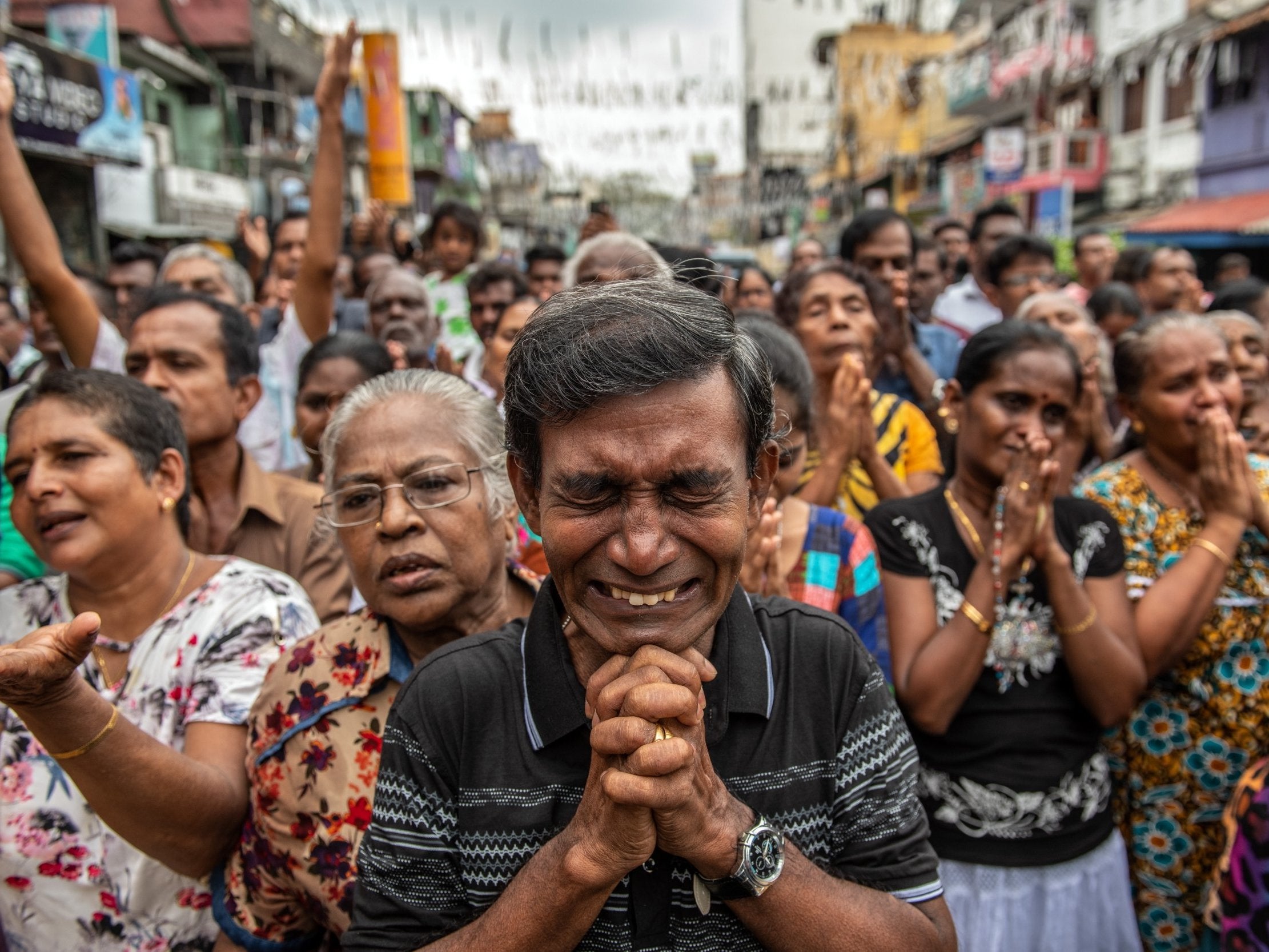Burqa ban: Sri Lanka bars Muslim women from wearing face veils after Easter bombing attacks
Emergency law will take effect eight days after more than 250 killed in series of blasts
Your support helps us to tell the story
From reproductive rights to climate change to Big Tech, The Independent is on the ground when the story is developing. Whether it's investigating the financials of Elon Musk's pro-Trump PAC or producing our latest documentary, 'The A Word', which shines a light on the American women fighting for reproductive rights, we know how important it is to parse out the facts from the messaging.
At such a critical moment in US history, we need reporters on the ground. Your donation allows us to keep sending journalists to speak to both sides of the story.
The Independent is trusted by Americans across the entire political spectrum. And unlike many other quality news outlets, we choose not to lock Americans out of our reporting and analysis with paywalls. We believe quality journalism should be available to everyone, paid for by those who can afford it.
Your support makes all the difference.Muslim women have been banned from wearing face veils under an emergency law passed by Sri Lanka's president, days after more than 250 people were killed in series of bombings in the country's capital Colombo.
Maithripala Sirisena's office said any garment or item which obstructs the identification of a persons face would be barred.
The move follows recent cabinet discussions on face coverings. The government had said it would delay a decision until talks with Islamic clerics could be held, on the advice of prime minister Ranil Wickremesinghe.
A week after the attack on Easter Sunday, the country's Catholic churches remained closed because of security fears.
However, Mr Sirisena and Mr Wickremesinghe attended a televised Mass at the residence of Cardinal Malcolm Ranjith, the archbishop of Colombo.
“This is a time our hearts are tested by the great destruction that took place last Sunday,” Mr Ranjith told those watching across the nation. “This is a time questions such as, does God truly love us, does he have compassion towards us, can arise in human hearts.”
Police said they had arrested 48 suspects over the last 24 hours as checkpoints were mounted by all of Sri Lanka’s security forces across the country.
Among those detained were two men whom authorities recently appealed to the public to locate.
Tensions have been running high on the island over the past week, with fears of further attacks as well as dread over possible retaliation against Sri Lanka’s Muslims.
Police entered the main mosque of National Towheed Jamaat (NTJ) in Kattankudy on Sunday afternoon, just a day after authorities declared that it was a terror group.

Authorities have banned NTJ over its ties to Mohammed Zahran, the alleged mastermind of the attacks which also left hundreds wounded.
Zahran and others wearing masks, had pledged their loyalty to Isis leader Abu Bakr al-Baghdadi before carrying out the attacks.
Later, an officer dispersed journalists waiting outside, saying authorities were conducting a “cordon and search operation.”
Police then left, locking up the mosque just before afternoon prayers were to start.
Earlier this week a Sri Lankan parliamentarian proposed a ban on women wearing the burqa.
Ashu Marasinghe submitted a motion to parliament stating that the garment, which covers the whole body and the face, was “not a traditional Muslim attire” and should be outlawed on security grounds.
On Friday night, a confrontation with police sparked a firefight with militants in Kalmunai. Sri Lanka’s military said the gunfire and later suicide blasts killed 15 people, including six children.
Isis clater laimed three of the militants who blew themselves up there, identifying the bombers by their noms du guerre as Abu Hammad, Abu Sufyan and Abu al-Qa’qa.
Police spokesman Ruwan Gunasekara confirmed a woman and a four-year-old child found wounded after the gunbattle have been identified as Zahran’s wife and daughter.
The Isis-aligned militants had created a bomb-making factory at the home. Bags of fertiliser, gunpowder and small ball bearings filled boxes. Police found fuels used to make the fire of the blast more lethal.
Additional reporting by AP

Join our commenting forum
Join thought-provoking conversations, follow other Independent readers and see their replies
Comments